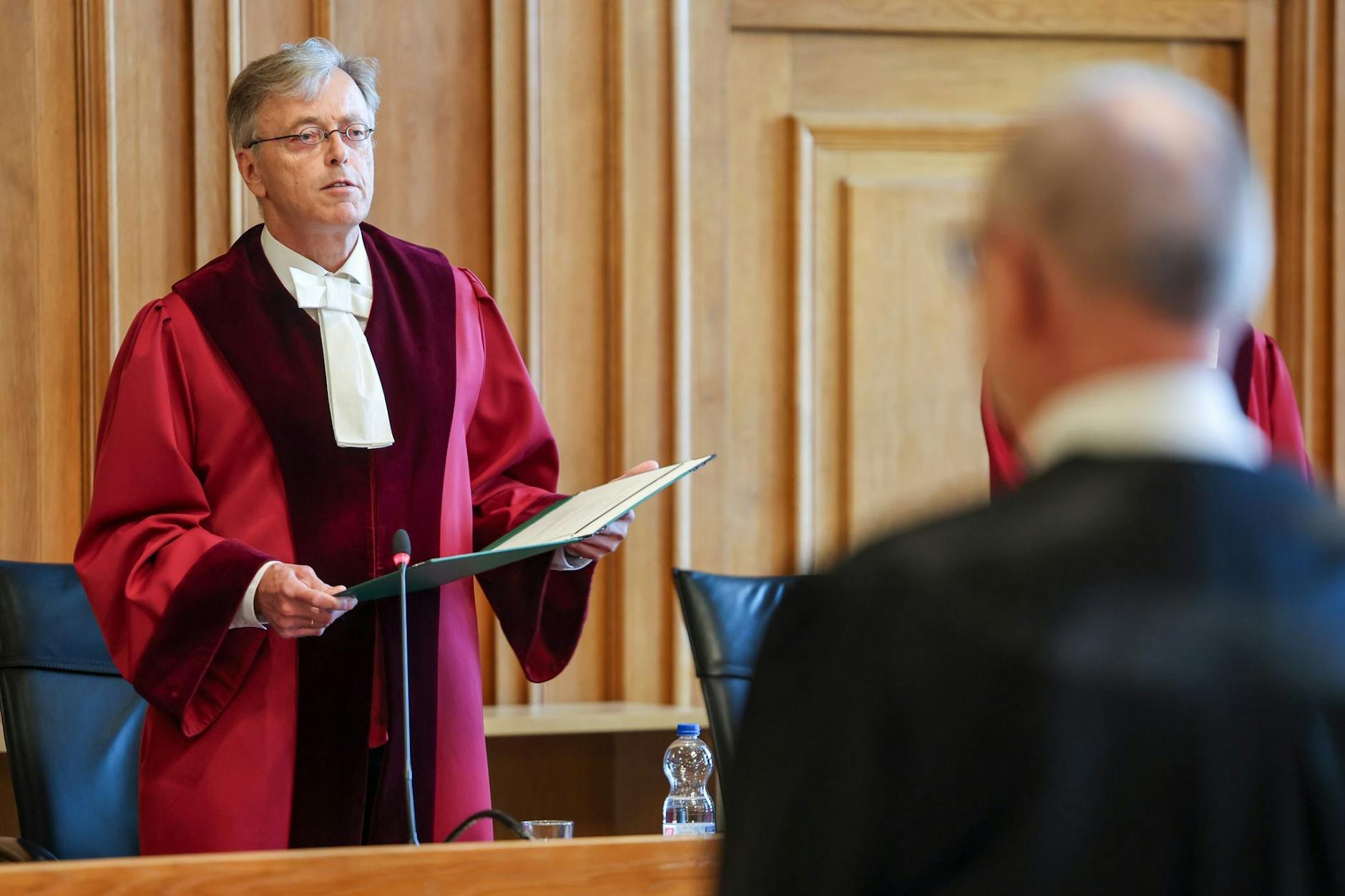Court overturns Compact ban: This ruling reveals the problem of Faeser's "fight against the right"

Almost a year has passed since Nancy Faeser banned Compact magazine. For many months since then, the publication has been able to portray itself as an unwavering champion of press freedom, on social media and at rallies. Its editor-in-chief, Jürgen Elsässer, was cheered at events wearing a bathrobe after police found him wearing one one morning in July 2024 while searching his house, the company headquarters. He sells the garment through his online shop for €149.95.
Now the Federal Administrative Court in Leipzig has overturned the ban imposed by the then SPD Interior Minister. And the question remains whether it was worth it—and what all this says about the means of the "fight against the far-right," to which not only Faeser, but also many other politicians, are committed.
The ministry justified the ban by arguing that Compact violated the constitutional order. It viewed the contributions as displaying an aggressive and combative stance, intended to delegitimize the democratic system. Anti-constitutional positions predominate in the texts and videos. Compact, it argued, distinguishes between "real Germans" and "passport Germans" and disseminates "anti-Semitic, racist, anti-minority, historical revisionist, and conspiracy-theoretical content." Ultimately, this poses a considerable potential for danger, including the potential for readers and viewers to be "incited and encouraged to act against the constitutional order."
Today, after the Federal Administrative Court's ruling, one must ask how well the ban was prepared under Faeser. How thoroughly the prospects of success were weighed against the consequences of a possible failure. How certain people were that Compact could be shut down under association law. Did political motives outweigh legal concerns?

"The Basic Law guarantees freedom of speech and freedom of the press even to enemies of the constitution," the presiding judge explained the Federal Administrative Court's ruling. There are indeed numerous polemical and pointed statements in the magazine. How true: Readers can indeed recognize for themselves that these are often derogatory and difficult to digest. A democratic public should even allow them to do so in a dispute of opinion. In general, it demonstrates a paternalistic view of humanity when politicians believe they must ban a magazine to protect citizens from themselves, because otherwise they could be seduced. In any case, the court concluded that the line into unconstitutionality had not been crossed. The articles in question were not formative for Compact.
When governments, especially interior ministers as constitutional ministers, commit to the "fight against the far-right," this poses a fundamental problem. All too often, they tend to overzealously employ the instruments of the rule of law in their political struggle. They conflate political goals with legal interventions. Their parties tighten criminal law provisions or draft new ones; they attempt to resort to laws to achieve political milestones. This is sometimes done with more, sometimes less thoughtful consideration. In Faeser's case, the latter applies.
The Leipzig ruling has two potential benefits. It shows that German courts are far from being as heavily infiltrated by left-wing and green parties as some AfD politicians claim. And it prevents Compact from one day being used as a precedent in a "fight against whatever."
Fortunately, there are politicians like Felor BadenbergWhen a comedian like Jan Böhmermann publishes a defamatory piece about a right-wing activist, giving him unprecedented reach and turning him into an icon of his political milieu, it's negligible. One can laugh at it and dismiss it as ill-conceived TV activism. His fans will pay homage to Böhmermann all the more, and critics will see their views vindicated. One should really expect nothing less from these formats. And ultimately, everyone can continue to form their own opinion about the statements of a "clown," because Böhmermann, whether he wants to or not, can't ban a YouTube account .

The situation is different for the state, a federal government, and ministers. They can ban media outlets if the courts cooperate. But what would happen then? Jürgen Elsässer and his colleagues could continue to reach their audience via Telegram or other channels. You can get rid of associations, but not people and unwelcome opinions. They might even gain more support, as a study by the Institute for Democracy and Civil Society in Jena (IDZ) suggests: After the ministry's ban, Compact's reach increased significantly. However, if the state fails because it acts for political reasons in a ban procedure, it loses its credibility.
It's good to know that there are government politicians who think differently. Take Felor Badenberg, for example, the Berlin Senator for Justice. You certainly can't accuse this woman of being blind in her right eye. Badenberg was Vice President of the Federal Office for the Protection of the Constitution, and as head of the right-wing extremism department, she worked on the report on suspected cases of suspected extremism against the AfD. Today, she says there's a problematic "short circuit" in the debate about an AfD ban. The legal and political aspects are often confused. She warns that "there must be a high probability of success" before proceedings are initiated.
If it fails, the AfD would receive "virtually a certificate of no objection" from the Federal Constitutional Court, thus perpetuating its victim status, Badenberg told the Tagesspiegel newspaper. The comforting thing about her words is that, regardless of whether one rejects the AfD or not, one thing is clear: Badenberg separates her personal political stance from generally accepted law. Nancy Faeser was apparently incapable of doing so.
Berliner-zeitung





